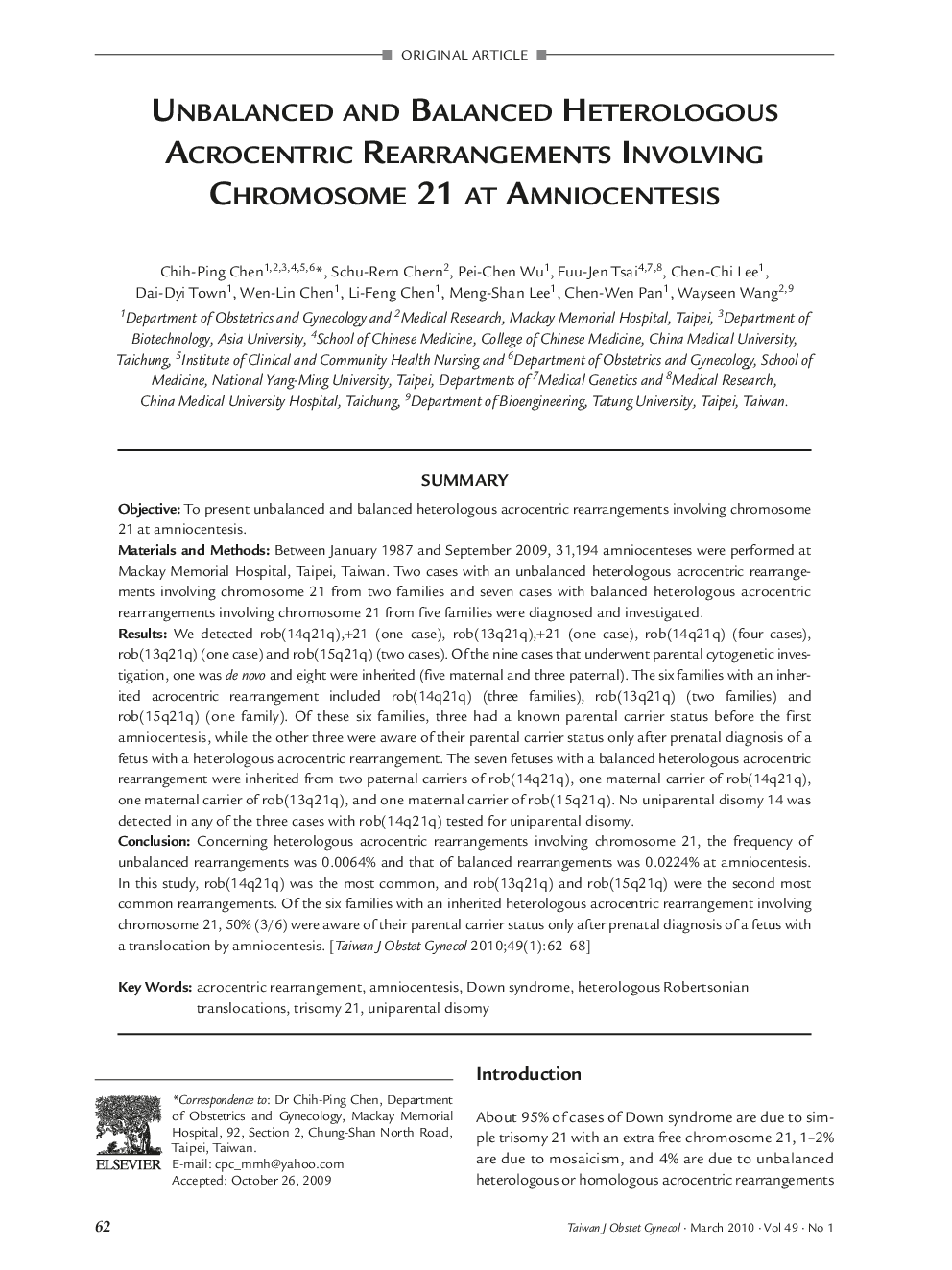| Article ID | Journal | Published Year | Pages | File Type |
|---|---|---|---|---|
| 3976038 | Taiwanese Journal of Obstetrics and Gynecology | 2010 | 7 Pages |
SummaryObjectiveTo present unbalanced and balanced heterologous acrocentric rearrangements involving chromosome 21 at amniocentesis.Materials and MethodsBetween January 1987 and September 2009, 31,194 amniocenteses were performed at Mackay Memorial Hospital, Taipei, Taiwan. Two cases with an unbalanced heterologous acrocentric rearrangements involving chromosome 21 from two families and seven cases with balanced heterologous acrocentric rearrangements involving chromosome 21 from five families were diagnosed and investigated.ResultsWe detected rob(14q21q),+21 (one case), rob(13q21q),+21 (one case), rob(14q21q) (four cases), rob(13q21q) (one case) and rob(15q21q) (two cases). Of the nine cases that underwent parental cytogenetic investigation, one was de novo and eight were inherited (five maternal and three paternal). The six families with an inherited acrocentric rearrangement included rob(14q21q) (three families), rob(13q21q) (two families) and rob(15q21q) (one family). Of these six families, three had a known parental carrier status before the first amniocentesis, while the other three were aware of their parental carrier status only after prenatal diagnosis of a fetus with a heterologous acrocentric rearrangement. The seven fetuses with a balanced heterologous acrocentric rearrangement were inherited from two paternal carriers of rob(14q21q), one maternal carrier of rob(14q21q), one maternal carrier of rob(13q21q), and one maternal carrier of rob(15q21q). No uniparental disomy 14 was detected in any of the three cases with rob(14q21q) tested for uniparental disomy.ConclusionConcerning heterologous acrocentric rearrangements involving chromosome 21, the frequency of unbalanced rearrangements was 0.0064% and that of balanced rearrangements was 0.0224% at amniocentesis. In this study, rob(14q21q) was the most common, and rob(13q21q) and rob(15q21q) were the second most common rearrangements. Of the six families with an inherited heterologous acrocentric rearrangement involving chromosome 21, 50% (3/6) were aware of their parental carrier status only after prenatal diagnosis of a fetus with a translocation by amniocentesis.
